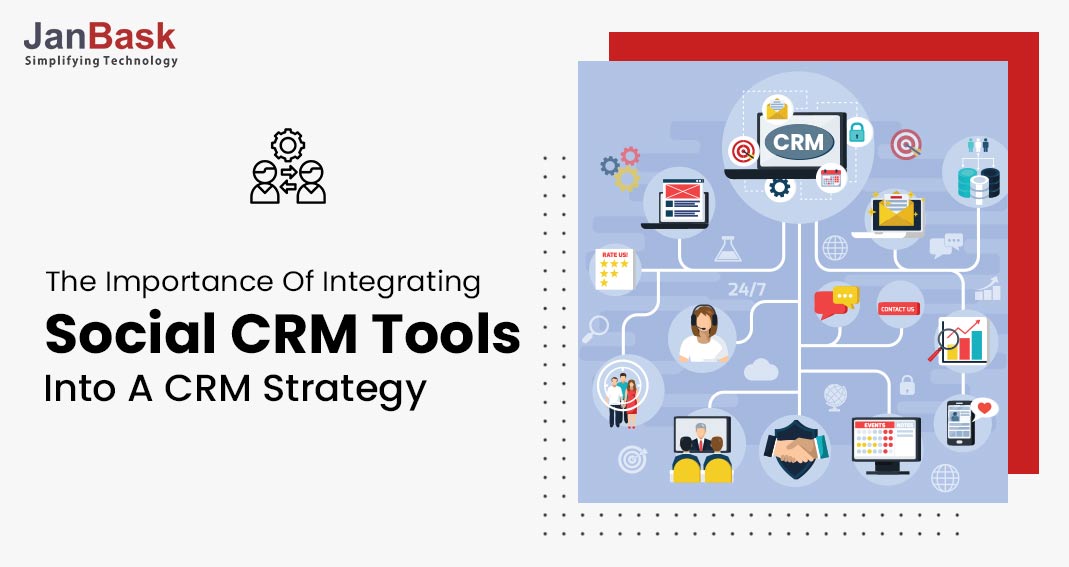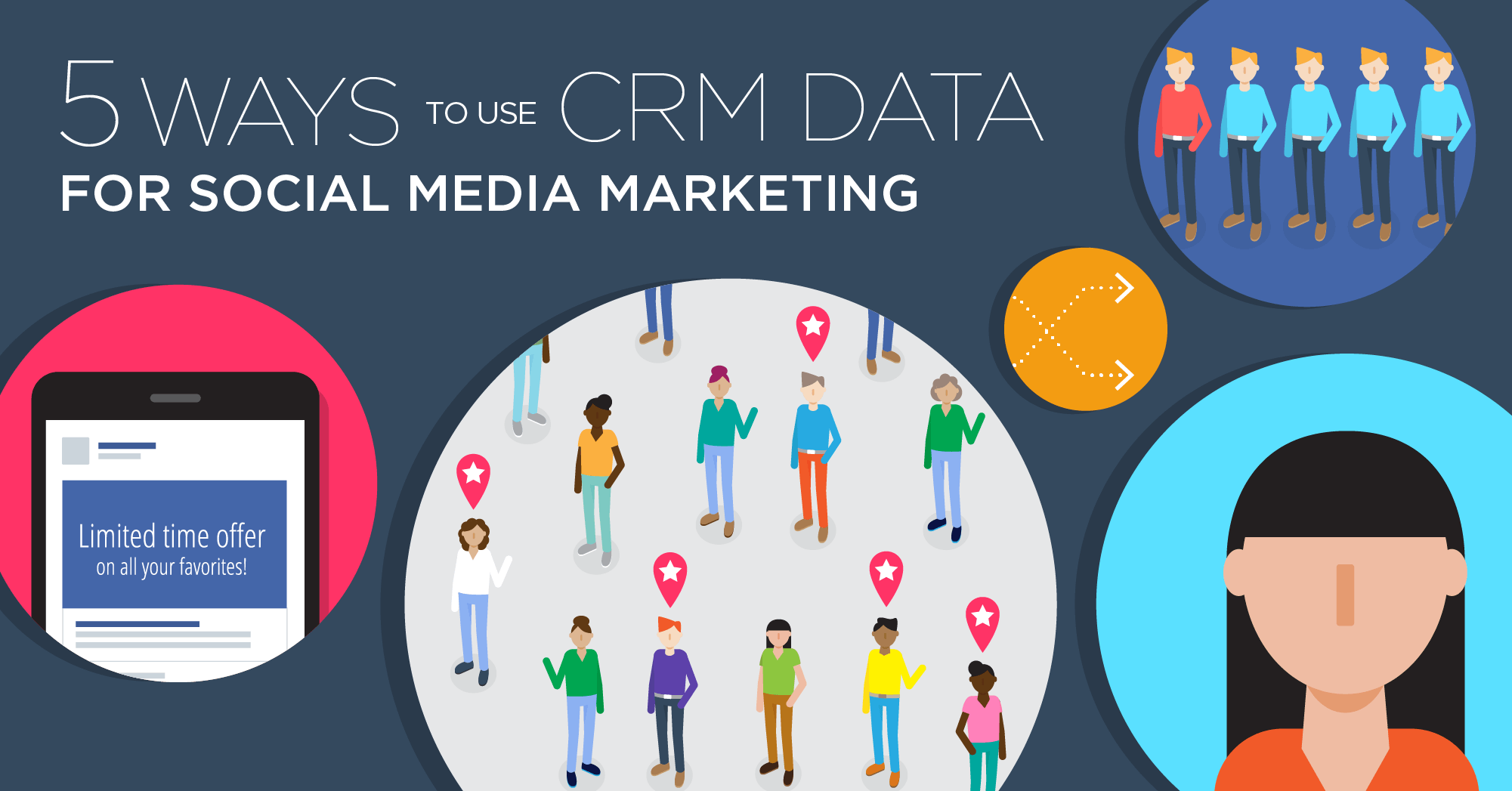
The Power of Connection: Integrating Social Media DMs with Your CRM for Enhanced Customer Relationships
In today’s digital landscape, social media is more than just a platform for sharing personal updates and cat videos. It’s become a critical channel for businesses to connect with customers, build brand awareness, and provide support. Among the various ways customers engage with brands on social media, direct messages (DMs) have emerged as a vital communication tool. However, managing these interactions in isolation can lead to fragmented customer experiences and missed opportunities. That’s where the integration of social media DMs with a Customer Relationship Management (CRM) system comes into play, offering a powerful solution for businesses looking to strengthen customer relationships and drive growth.
Understanding the Customer Service Landscape in the Age of Social Media
The rise of social media has fundamentally altered customer expectations. Customers now expect instant responses, personalized experiences, and seamless interactions across all channels. Social media platforms, with their immediacy and accessibility, have become a primary avenue for customers to seek help, voice concerns, and share feedback. Ignoring or mishandling these interactions can have serious consequences for brand reputation and customer loyalty.
Furthermore, social media interactions are public, meaning that negative experiences can quickly go viral, damaging a brand’s image. Conversely, positive experiences can be amplified, generating positive word-of-mouth and attracting new customers. Therefore, businesses must proactively manage their social media presence and ensure that all customer interactions are handled efficiently and effectively.
The Challenges of Managing Social Media DMs in Isolation
While social media platforms provide basic tools for managing DMs, these tools often lack the sophisticated features and capabilities required for effective customer relationship management. Some common challenges include:
- Siloed Data: Social media DMs are often disconnected from other customer data sources, such as CRM systems, email marketing platforms, and support ticketing systems. This lack of integration makes it difficult to get a complete view of the customer and personalize interactions.
- Inefficient Workflows: Managing DMs manually can be time-consuming and error-prone. Agents may have to switch between multiple platforms, copy and paste information, and manually track interactions. This can lead to delays in response times and inconsistent customer experiences.
- Lack of Analytics: Without proper tracking and reporting, it’s difficult to measure the effectiveness of social media customer service efforts. Businesses may not know which types of inquiries are most common, which agents are performing best, and how social media interactions are impacting customer satisfaction.
- Missed Opportunities: Without a centralized system for managing DMs, it’s easy to miss important inquiries or opportunities to engage with customers. For example, a customer may send a DM asking about a specific product or service, but if the message is overlooked, the business may lose a potential sale.
- Difficulty in Scaling: As a business grows, the volume of social media DMs can quickly become overwhelming. Without a scalable system in place, it becomes increasingly difficult to manage interactions effectively and maintain a high level of customer service.
The Solution: Integrating Social Media DMs with CRM
Integrating social media DMs with a CRM system provides a comprehensive solution to these challenges, enabling businesses to:
- Centralize Customer Data: By connecting social media DMs with the CRM, businesses can create a unified view of each customer, including their contact information, purchase history, past interactions, and social media activity. This holistic view enables agents to provide more personalized and relevant support.
- Automate Workflows: CRM integration allows businesses to automate many of the tasks associated with managing social media DMs, such as routing inquiries to the appropriate agent, assigning priority levels, and sending automated responses. This streamlines workflows and improves efficiency.
- Improve Response Times: By centralizing DMs in the CRM, agents can quickly access and respond to inquiries, reducing response times and improving customer satisfaction. Automated notifications and alerts can ensure that no message goes unanswered.
- Enhance Personalization: With access to a complete view of the customer, agents can personalize their interactions and provide more relevant recommendations and solutions. This can lead to increased customer loyalty and advocacy.
- Track and Measure Performance: CRM integration provides detailed analytics and reporting on social media customer service efforts, allowing businesses to track key metrics such as response times, resolution rates, and customer satisfaction scores. This data can be used to identify areas for improvement and optimize performance.
- Improve Collaboration: CRM systems enable agents to collaborate more effectively on social media inquiries. Agents can easily share information, assign tasks, and escalate issues to other team members, ensuring that all customer inquiries are handled efficiently and effectively.
- Gain Deeper Insights: Analyzing social media DMs within the CRM can provide valuable insights into customer sentiment, product feedback, and emerging trends. This information can be used to improve products, services, and marketing campaigns.
Benefits of CRM and Social Media DM Sync
The integration of CRM and social media DMs offers a wide range of benefits for businesses, including:
- Improved Customer Satisfaction: Faster response times, personalized interactions, and efficient issue resolution lead to higher customer satisfaction.
- Increased Customer Loyalty: Customers are more likely to remain loyal to businesses that provide excellent customer service across all channels.
- Enhanced Brand Reputation: Proactive and responsive social media customer service can enhance a brand’s reputation and attract new customers.
- Increased Sales and Revenue: By responding to inquiries and addressing concerns in a timely manner, businesses can convert more leads into customers and increase sales.
- Reduced Costs: Automated workflows and improved efficiency can reduce the costs associated with managing social media customer service.
- Better Data-Driven Decision Making: Detailed analytics and reporting provide valuable insights that can be used to improve business strategies and optimize performance.
Choosing the Right CRM with Social Media DM Integration
When selecting a CRM with social media DM integration, it’s important to consider the following factors:
- Platform Compatibility: Ensure that the CRM integrates with the social media platforms that your business uses most frequently.
- Feature Set: Look for a CRM that offers a comprehensive set of features for managing social media DMs, such as automated routing, personalized responses, and analytics.
- Scalability: Choose a CRM that can scale to meet the growing needs of your business.
- Ease of Use: Select a CRM that is easy to use and intuitive for your agents.
- Pricing: Compare the pricing of different CRM systems and choose one that fits your budget.
- Reviews and Reputation: Read reviews and check the reputation of the CRM provider before making a decision.
Best Practices for Implementing CRM and Social Media DM Integration
To maximize the benefits of CRM and social media DM integration, follow these best practices:
- Develop a Social Media Customer Service Strategy: Define your goals, target audience, and key performance indicators (KPIs) for social media customer service.
- Train Your Agents: Provide your agents with the training and resources they need to effectively use the CRM and manage social media DMs.
- Monitor Social Media Channels: Actively monitor social media channels for customer inquiries and mentions.
- Respond Promptly and Professionally: Respond to all inquiries in a timely and professional manner.
- Personalize Your Interactions: Use the information in the CRM to personalize your interactions with customers.
- Track and Measure Your Results: Track your KPIs and make adjustments to your strategy as needed.
- Regularly Review and Optimize: Stay updated with the latest trends and features in CRM and social media to continually improve your integration and customer service strategies.
Conclusion
Integrating social media DMs with a CRM system is essential for businesses looking to build stronger customer relationships, improve customer satisfaction, and drive growth in today’s digital age. By centralizing customer data, automating workflows, and providing personalized interactions, businesses can create a seamless and exceptional customer experience across all channels. Choosing the right CRM and following best practices will help businesses unlock the full potential of social media and transform their customer service efforts. The power of connection lies in understanding your customer completely, and a synchronized CRM with social media DMs is the key to unlocking that understanding.

